UK government announces plan to send asylum seekers to Rwanda
- Published
- comments
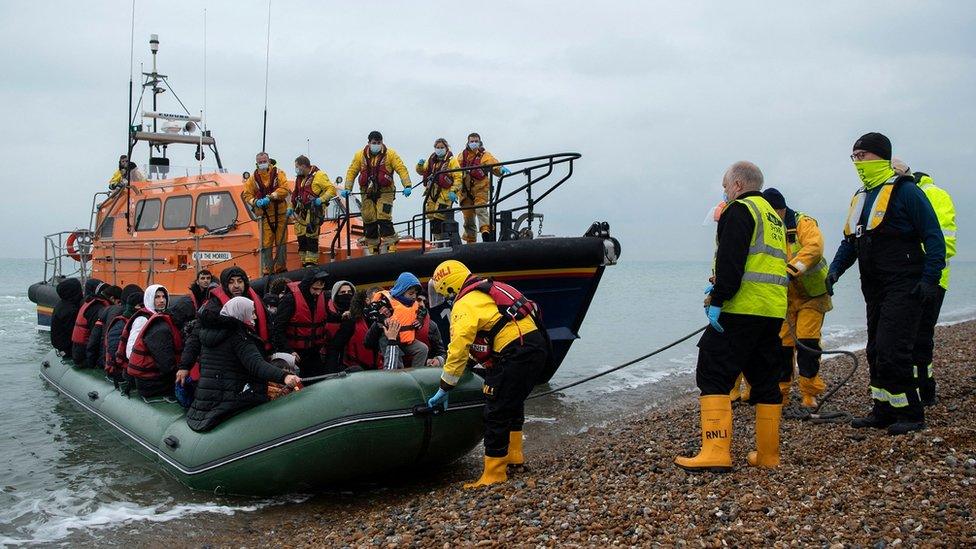
The number of people crossing the English Channel has risen sharply this year
The UK government has announced new plans to send some asylum seekers who arrive in the UK, to live in Rwanda, in Africa instead.
Charities and politicians have criticised the new plans saying they are "cruel and nasty" and "absolutely chilling", but Prime Minister Boris Johnson said the plans would "save countless lives".
The United Nations refugee agency UNHCR said the government's new plans could be a breach of international law - this means they might have broken agreements between countries to help refugees.
However, Boris Johnson has said he believes the new plans do follow international law.
The scheme is one of a number of new plans announced by the UK government to tackle small boat crossings in the Channel - the strip of water between the UK and France. Other plans include handing control of the Channel to the Navy, and asylum seekers who are resettled in the UK being spread more evenly across local authorities.
What is the nationality and borders bill?
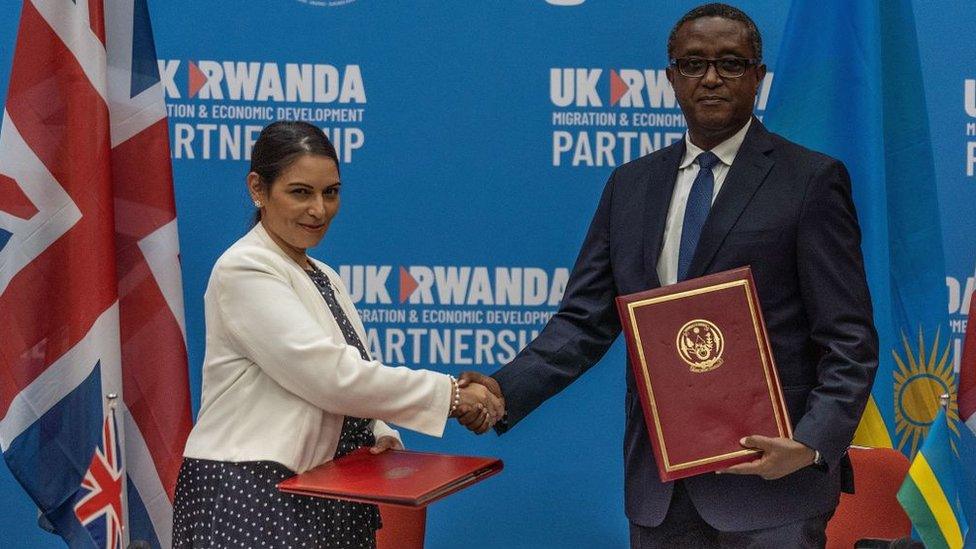
Home Secretary Priti Patel travelled to the Rwandan capital Kigali to sign the deal, which would last for five years.
Under the nationality and borders bill, people who are thought to have entered the UK unlawfully since 1 January could be flown to Rwanda, 4,000 miles away, where they will be allowed to apply for the right to live in the African country. They will not be allowed to apply to stay in the UK.
The new plan will cost the government around £120 million pounds.
The government said the first flights to Rwanda could start within the next few weeks.
The scheme would first focus on single men who crossed the Channel in small boats or lorries.
The nationality and borders bill will be debated by MP's in the House of Commons next week, after being rejected by the House of Lords for a second time.
An asylum seeker is a person who has fled their home country, entered another country and applied for the right to international protection and to stay in that country.
In the UK, asylum seekers have limited rights. For example, asylum seekers aren't allowed to work. They must rely on government support. Housing is provided, but asylum seekers can't choose where it is.
Under the new plan, asylum seekers would be screened - a type of interview where they are asked about their family, their journey to the UK, and why they are claiming asylum.
These details would then be sent to Rwanda, who would have to approve them before a person can be sent there.
After arriving in Rwanda the plan says that each asylum seeker would be given somewhere to live, and support and would be free to come and go from their accommodation at all times.
As part of the deal, the UK would also allow "a portion of Rwanda's most vulnerable refugees" to live in the UK.
What have the government said?
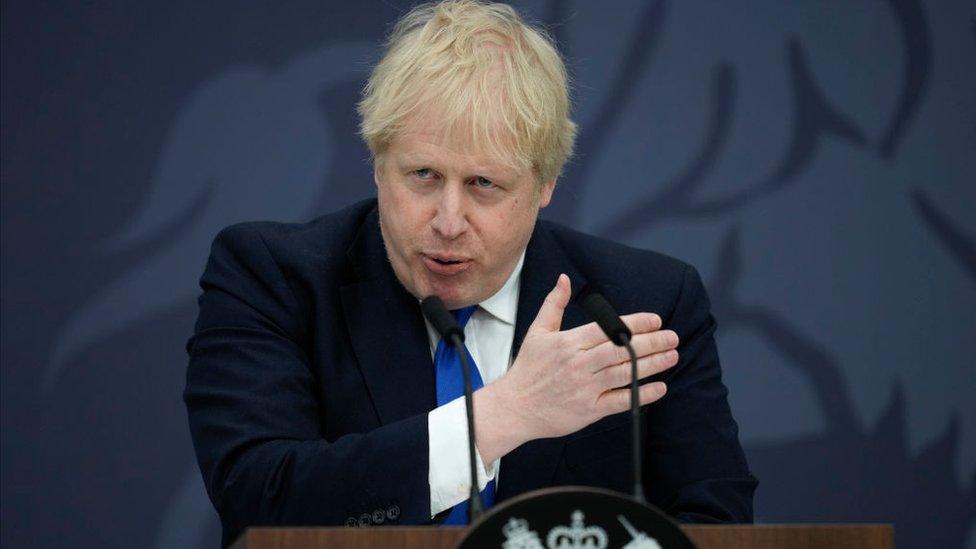
Prime minister Boris Johnson laid out the plans for the new bill in a speech in Kent.
Prime Minister Boris Johnson has said the plan will "save countless lives" and break the business model of "vile people smugglers".
Each year thousands of people make a dangerous trip across the English Channel from France.
Vulnerable people, including children make the journey in small, overcrowded boats that are at risk of sinking.
Last year 28,526 migrants crossed the Channel, up from 8,404 in 2020.
Migrants have different reasons for trying to come to the UK - many come from countries like Afghanistan, Syria and Iraq where homes have been destroyed or people need to escape for their safety.
Others are coming to the UK illegally in hope of finding more opportunities.
For several years organised crime gangs have created an entire industry in smuggling people to different countries. Families sometimes save up huge sums to send just one relative to Europe, but despite getting lots of money, the gangs put people in flimsy boats to make the dangerous crossing.
The government argues that by sending asylum seekers to Rwanda it will discourage people from trying to cross the Channel, and put a stop to the criminal gangs. Charities and refugee groups say this won't work, and people will still pay the gangs to try to cross.
At the last election, Boris Johnson's Conservative Party promised to do more to control immigration, and so hope that voters in the UK will agree with their policy.
But charities argue that there is no real way that asylum seekers can now make it to Britain legally, so it is unfair on those who break the rules to get to the UK.
Why do some people disagree with the new plan?
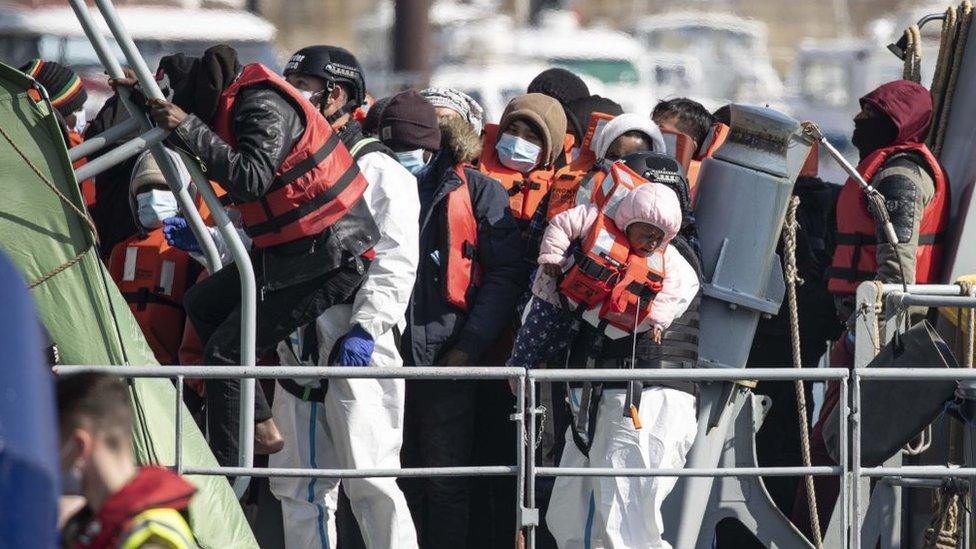
Around 562 people on 14 boats made the journey on the day the new scheme was announced, according to the Ministry of Defence.
Since it was announced the plan has received strong criticism, with some charities and MP's concerned about the wellbeing of asylum seekers, how expensive the plan is, and whether it would actually work.
More than 160 charities and campaign groups have urged the government to scrap the new plan in an open letter that called it: "shamefully cruel".
Enver Solomon, the chief executive of the Refugee Council, said the charity was "appalled by the government's cruel and nasty decision" and that people were being treated "as no more than human cargo to be shipped thousands of miles away so they are out of sight and out of mind."
He also drew comparison to the government's recent plan to accept Ukrainian refugees in the UK, and questioned why asylum seekers were being treated differently.
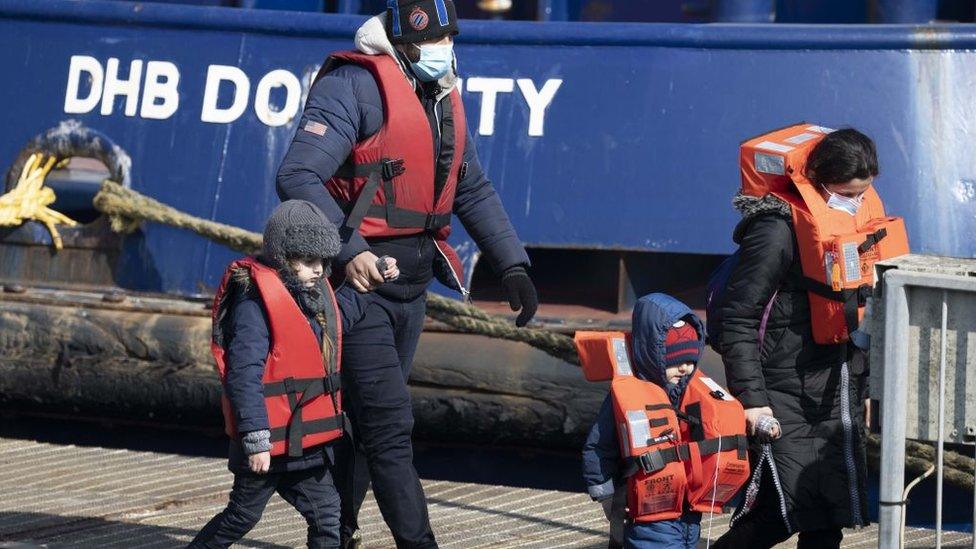
Asylum seekers arrived into Dover, in the South of England.
Miranda Butler, a lawyer who is an expert in immigration law, said there were "serious questions" about the risks faced by migrants under the new plan.
The Archbishop of Canterbury said that the new plan was "the opposite of the nature of God" and raised "serious ethical questions about sending asylum seekers overseas".
The plan has also faced criticism from other MP's including opposition parties and some Conservatives.
Labour leader Sir Keir Starmer said the scheme was "unworkable, unethical and extortionate". The Liberal Democrats said the government was "slamming the door" in the face of refugees, and Ian Blackford from the Scottish National Party (SNP) said the new plan was "absolutely chilling".
What is Rwanda like?
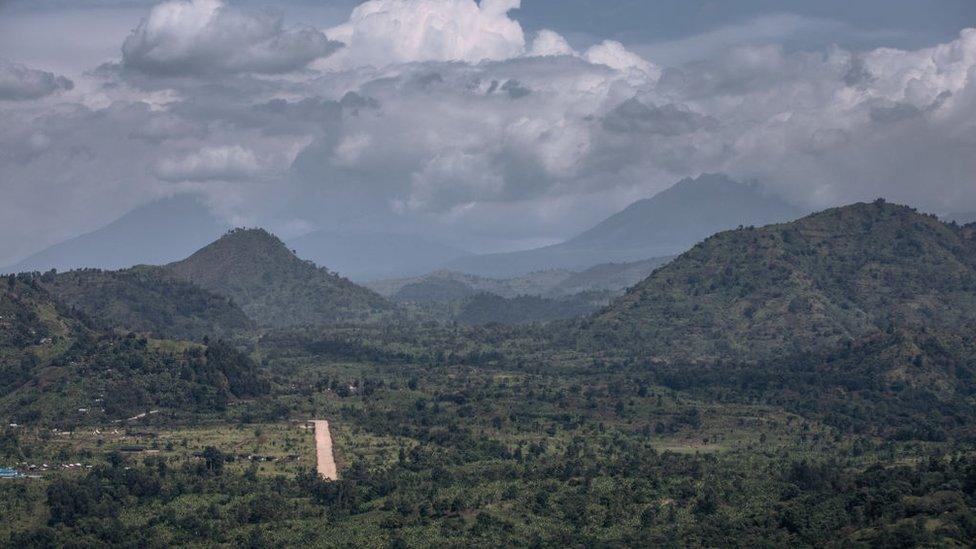
Rwanda is known as the "land of a thousand hills" because of its hilly landscape.
Rwanda is a country in east-central Africa with a population of around 12 million people.
The country is ruled by President Paul Kagame, who regularly speaks about his commitment to refugees, having been a refugee himself in Uganda.
However, the country has a poor human rights record, and there have been many concerns about President Kagame's leadership and the political freedom of people in the country - with some opposition leaders reported as missing or dead.
In the mid 1990s around 800,000 people were killed in Rwanda in an event that became known as the Rwandan genocide.
A refugee is a person who has been forced to leave their country because they are in danger. This can be war, being treated badly because of their beliefs or escaping a natural disaster.
Refugees leaving their countries often take long journeys by car, lorry, boat or even on foot to get to safety.
Often refugees gather in places called refugee camps, which are giant camps with many thousands of people living there, often in poor conditions.
Last year, the UK government expressed concern at the United Nations over "continued restrictions to civil and political rights and media freedom" in Rwanda.
But Mr Johnson has now described Rwanda as being one of the safest countries in the world and said there was a "risk of stereotyping".
Yolande Makolo, a spokesperson for the Rwandan government, told the BBC it is "a safe country, it's developing rapidly, we care as much as every country about human rights".
She said the nation had a "strong record of protecting migrants and refugees".
